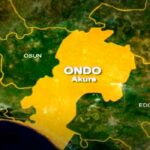
The Monetary Policy Committee of the Central Bank of Nigeria on Monday decried the negative impact of the increasing oil thefts on the economy.
Specifically, it said the situation was affecting the accretion of the country’s foreign exchange reserves and government revenue.
The Governor, Central Bank of Nigeria, Godwin Emefiele, who is also the chairman of the MPC, disclosed this after the committee’s meeting in Abuja.
While reading the communiqué after the meeting, he also announced the retention of the lending rates in the banking sector.
He said the MPC “retained the Monetary Policy Rate at 11.5 per cent; asymmetric corridor of +100/-700 basis points around the MPR; Cash Reserve Ratio at 27.5 per cent; and liquidity ratio at 30 per cent.”
While the rates were not retained by unanimous votes by the MPC members, he disclosed that three members voted to raise the MPR by 25-basis points, one member voted to raise MPR by 50-basis points, while six members voted to hold all parameters constant.
“The committee thus decided by a majority vote to retain the MPR,” Emefiele said.
Speaking on the impact of oil on the economy, he said before the Russia-Ukraine war, the MPC was optimistic that the moderate decline in inflation was sustainable due to the positive impact of good harvest on price levels.
He, however, said the MPC was worried that the rising global oil prices had been compounded by the shortage of supply of petroleum products.
Emefiele said, “In the short-run, the MPC urges the NNPC to take urgent steps to ensure an adequate supply of petroleum products in Nigeria so as to reduce the rate of arbitrary increase in the price of petroleum products by oil marketers.
“The committee noted, with grave concern, the unprecedented rate of oil theft recorded in recent time, and its debilitating impact on government revenue and accretion to reserves.”
In the medium-term, he said, the MPC was hopeful that the proposed take-off of the Dangote Refinery in the course of the year would help to improve the supply of petroleum products in Nigeria.
He said the MPC also noted that the rising price of diesel was compounded by the problem of inadequate electricity supply which had adversely impacted domestic prices.
“MPC advises the CBN management and the fiscal authorities to take specific and urgent actions to avoid many power generating stations shutdown for turn-around maintenance, resulting in the current unwarranted shutdown of generating assets,” he said.
Emefiele also said the committee reviewed the performance of the bank’s various interventions to stimulate productivity in manufacturing, industry, agriculture, energy, infrastructure, healthcare, and micro, small and medium enterprises.
Between January and February 2022, he said the bank disbursed N29.67bn under the Anchor Borrowers’ Programme for the procurement of inputs and cultivation of maize, rice, and wheat, the three crops that hitherto were significant concerns of FX demand.
“These disbursements bring the total under the programme to over 4.52 million smallholder farmers, cultivating 21 commodities across the country, comes to a total of N975.61bn,” he said.
Copyright PUNCH.
All rights reserved. This material, and other digital content on this website, may not be reproduced, published, broadcast, rewritten or redistributed in whole or in part without prior express written permission from PUNCH.
Contact: [email protected]





